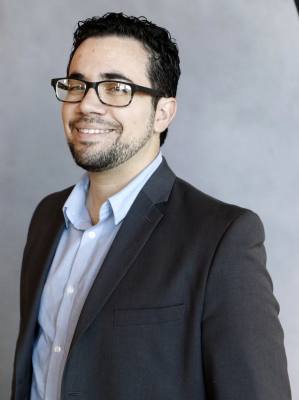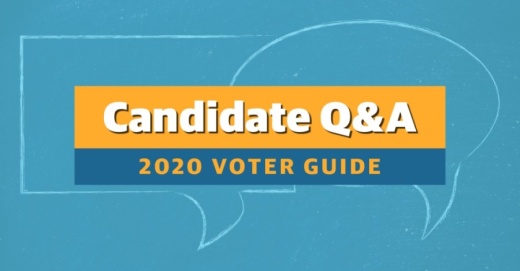AUSTIN ISD
BOARD OF TRUSTEES DISTRICT 5

Lynn Boswell
Candidate bio: Boswell is the mom of a 2017 AISD graduate and a LASA senior. She has a law degree from UT and makes documentary films. She said her volunteer service in AISD began with the Casis PTA and includes several district-wide advisory bodies. She is also a past-president of the Austin Council of PTAs, and has served on Austin’s Juvenile Justice Workgroup, the Travis County Census 2020 Complete Count Committee and Just Fund It TX.
What are the biggest challenges facing District 5 right now, and how do those relate to what AISD faces as a whole?
LB: The impact of COVID is the most immediate challenge. Students everywhere are losing learning, facing mental health challenges, and missing important opportunities that school provides. That’s true in District 5, as well – especially for students with economic disadvantage (22% of D5 students), and special education needs (10.8%). Funding to retain strong teachers, support excellent academics, ensure extracurricular options and provide student support is another challenge – in District 5 and district-wide. AISD must increase funds through advocacy and by retaining students who are leaving AISD.
How would you grade the district’s COVID-19 response so far and what, if anything, would you have done differently if on the board?
LB: I applaud AISD for moving online last spring and acting quickly to provide meals and WiFi. However, AISD could and should have done more. I would have started with clear, frequent, empathetic communication, even about unknowns – from every campus and the district. AISD also should have mobilized a more ambitious civic response to this big civic problem, with science, creativity and collaboration. And I would have advocated strongly with the state – to protect funding, waive high-stakes testing and ensure local control over decision-making.
Austin ISD voted to close four schools last fall as part of its school changes plan, with an assumption that another proposal for changes would be coming in 2020. How do you feel about the original plan, and what would you like to see going forward?
LB: School closures were a mistake – made despite strong opposition, unmet promises and a failure to engage the community in truly collaborative ways. Future closures must be paused until we have data about the impact on affected students and on whether promised savings have been realized. We must also look at schools that remain on the potential closure list, supporting community-led efforts to find solutions created by the community, not imposed on the community.
The district opened an equity office last year. How would you like to see the office used going forward?
LB: We must begin with an honest, comprehensive equity assessment. A shared understanding of facts provides a foundation for working together on identifying problems and creating solutions. People in District 5 want and need to be part of that conversation – one that I have engaged with for years as a leader of the Austin Council of PTAs. The equity office must support a shift in AISD’s culture – to see every student’s potential and work to ensure all have what they need to succeed.
How can the district better retain its students as charter schools and other options continue to get established in AISD?
LB: AISD must take an honest look at why families choose charters, then work with families to address unmet needs. Community schools with wraparound services and on-site childcare are essential. So is a focus on valuing principals who build relationships and ensure that students, teachers, and families are valued. We must also welcome all families into our schools, starting with programs that serve new parents like read-alouds in school libraries. All families must know they belong.

Jennifer Littlefield
Candidate bio: Littlefield is the parent of two children who attend District 5 schools, and she herself is a graduate of Austin High School. She said she has been an active volunteer at Patton Elementary School, Small Middle School, and Austin High. Littlefield served on the 2017 bond committee, and said she is committed to serving District 5 and AISD with a focus on strategic planning and community-led decision making. She is also an experienced attorney with a legislative and policy background.
What are the biggest challenges facing District 5 right now, and how do those relate to what AISD faces as a whole?
JL: My top priorities are reopening safely, improving strategic planning, and addressing equity issues that will be exacerbated by remote learning. I believe strong community engagement is the core building block of public trust. It is an essential element of success in tackling equity issues and other challenges. I will focus on strategic planning to ensure we are spending every dollar wisely. I will prioritize competitive salaries for teachers, as well as strengthening academic and extracurricular programming that attracts families to AISD. I will also advocate for improving AISD’s special education and dyslexia intervention services.
How would you grade the district’s COVID-19 response so far and what, if anything, would you have done differently if on the board?
JL: AISD has struggled to effectively communicate its reopening plans with parents, teachers, and principals. Providing clear and timely information about reopening is critical to ensuring that families continue to choose AISD schools. AISD’s reopening plans should protect teachers, students, and staff by using public health expertise to guide reopening decisions. Until all students are able to safely be back in the classroom together, AISD should prioritize in-person learning for students with highest academic need while providing all students the opportunity for meaningful interaction with peers and teachers.
Austin ISD voted to close four schools last fall as part of its school changes plan, with an assumption that another proposal for changes would be coming in 2020. How do you feel about the original plan, and what would you like to see going forward?
JL: People support solutions they help create. Moving forward, AISD must improve its track record of including parents, teachers, and community stakeholders in the district’s decision making process. Any future school closure decisions must use a transparent criteria and community led decision-making. Further, the district’s top priority now should be focusing on supporting teachers and students with safe reopening plans and continued improvements to remote learning.
The district opened an equity office last year. How would you like to see the office used going forward?
JL: The equity office should be an integral part of district operations. The AISD Equity Officer should work with the Board and Superintendent to inform policy decisions. My experience as an Austin High graduate and now parent gives me the unique insight of what has improved in our schools over the last 25 years and what work remains to be done. Then and now, not all students in AISD benefit from the same educational opportunities. We must ensure that every student is set up for success in AISD.
How can the district better retain its students as charter schools and other options continue to get established in AISD?
JL: AISD faces competition from charters, private schools, and neighboring school districts. Our goal must be to provide strong academics, fine arts, athletics, and an inclusive and nurturing environment on every campus. We accomplish this by investing in competitive teacher salaries, continued bond investments to improve aging facilities, and programs that attract families to AISD, such as dual language, STEM programs, and Early College High School.

Piper Stege Nelson
Candidate bio: A native of Austin and a Bryker Woods alum, Stege Nelson is the mother of two AISD elementary school students and is the daughter of two teachers. She said she is a former middle school teacher and now serves as the Chief Public Strategies Officer at The SAFE Alliance. She has experience working with nonprofits and political action committees, and said over the past five years has served on the Austin Commission for Immigrant Affairs, the Lee Elementary PTA Executive Board, as the Board Chair of AIDS Services of Austin, and ACPTA.
What are the biggest challenges facing District 5 right now, and how do those relate to what AISD faces as a whole?
PSN: The biggest issues facing District 5 right now include safety (and primarily the pandemic and the AISD response), the hugely flawed communications from AISD, and the vast inequities facing all of AISD. Each of these issues is wreaking havoc on District 5 families, students, staff and teachers; we are seeing families leave the district to charters, private schools, pods, online learning and more. But these are all issues that have a huge impact on the AISD community as a whole.
How would you grade the district’s COVID-19 response so far and what, if anything, would you have done differently if on the board?
PSN: I give the district’s COVID-19 response a C. AISD’s roll out of devices and hotspots and meals was phenomenal. But the district should have planned for our fall reentry plans in the spring. AISD needs to push back on TEA on the forced return to face-to-face learning and on STAAR testing. Everyone that is able to learn remotely should, and for those students that cannot (kids with Special Education needs, without internet/device literacy, families with no childcare, etc.), we must find safe spaces for them to learn, and we must compensate the teachers and staff that can teach in person.
Austin ISD voted to close four schools last fall as part of its school changes plan, with an assumption that another proposal for changes would be coming in 2020. How do you feel about the original plan, and what would you like to see going forward?
PSN: The community must play an important role in the decisions surrounding their school. The 2019 School Changes Plan was a prime example of AISD not engaging the impacted communities in thoughtful ways, thereby leading to a steep erosion of trust. There must now be a rebuilding of trust - and this is particularly true with those communities crushed by our system’s historic racism.
The district opened an equity office last year. How would you like to see the office used going forward?
PSN: The Chief Equity Officer can help the district to find a good external entity to conduct an equity audit of the district, which will provide the Equity Office with the additional support and authority they need to prove what changes must be made. In addition, the district leadership (starting with trustees) must receive additional and intensive antiracism and inclusion training. And the Equity Office can also take the lead on disaggregating district data, creating regular dashboards that show district data on student performance, teacher promotion/retention, disciplinary actions, school communications, and more - all disaggregated by race, by school, and more.
How can the district better retain its students as charter schools and other options continue to get established in AISD?
PSN: First and foremost, if true public schools received the funding they deserved, all schools would have appropriate staffing and resources to meet the needs of their communities. The key is making sure that every family in AISD feels welcomed and supported at their public school so that we don’t have to worry about charters. AISD schools, supports, and systems need to fit the needs of kids to prevent families from fleeing to the charter school system.





